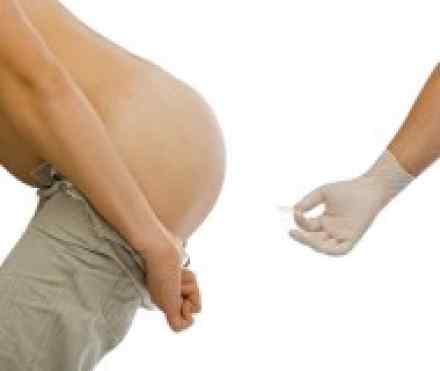
What is it?
- Hemorrhoids, also called piles, are swollen and inflamed veins in your anus and lower rectum. Hemorrhoids may result from straining during a bowel movement or from the increased pressure on these veins during pregnancy, among other causes.
- A sometimes embarrassing topic of discussion, hemorrhoids are one of the most common ailments. By age 50, about half of adults have had to deal with the itching, discomfort and bleeding that can signal the presence of hemorrhoids.
- Fortunately, many effective options are available to treat hemorrhoids. Most people can get relief from symptoms using home treatments and lifestyle changes.
Symptoms
Signs and symptoms of hemorrhoids may include:
- Painless bleeding during bowel movements — you might notice small amounts of bright red blood on your toilet tissue or in the toilet bowl
- Itching or irritation in your anal region
- Pain or discomfort
- Hemorrhoids protruding from your anus
- Swelling around your anus
- A sensitive or painful lump near your anus
- Leakage of feces
Hemorrhoid symptoms usually depend on the location. Internal hemorrhoids lie inside the rectum. You can't see or feel these hemorrhoids, and they usually don't cause discomfort. But straining or irritation when passing stool can injure a hemorrhoid's delicate surface and cause it to bleed. Occasionally, straining can push an internal hemorrhoid through the anal opening. This is known as a protruding or prolapsed hemorrhoid and can cause pain and irritation.
External hemorrhoids are under the skin around your anus. When irritated, external hemorrhoids can itch or bleed. Sometimes blood may pool in an external hemorrhoid and form a clot (thrombus), resulting in severe pain, swelling and inflammation.
Causes
The veins around your anus tend to stretch under pressure and may bulge or swell. Swollen veins — hemorrhoids — can develop from an increase in pressure in the lower rectum. Factors that might cause increased pressure include:
- Straining during bowel movements
- Sitting for long periods of time on the toilet
- Chronic diarrhoea or constipation
- Obesity
- Pregnancy
- Anal intercourse
It's also possible to inherit a tendency to develop hemorrhoids. Hemorrhoids are more likely as you get older because the tissues that support the veins in your rectum and anus can weaken and stretch with aging.
Complications
Complications of hemorrhoids are rare but include:
- Anemia. Chronic blood loss from hemorrhoids may cause anemia, in which you don't have enough healthy red blood cells, resulting in fatigue and weakness.
- Strangulated hemorrhoid. If blood supply to an internal hemorrhoid is cut off, the hemorrhoid may be "strangulated," which can cause extreme pain and lead to tissue death (gangrene).
Diagnosis
Your doctor may be able to see if you have external hemorrhoids simply by looking. For internal hemorrhoids, he or she will insert a rubber-gloved finger into your rectum. Because internal hemorrhoids are often too soft to be felt in a rectal examination, your doctor may also examine the lower portion of your colon and rectum with an anoscope, proctoscope or sigmoidoscope. These are flexible, lighted tubes that allow your doctor to see into your anus and rectum.
Your doctor may want to do a more extensive examination of your entire colon using colonoscopy. This might be recommended if:
- Your signs and symptoms suggest you might have another digestive disease
- You have risk factors for colorectal cancer
- You're over age 50 (age 45 if you're black) and haven't had colonoscopy within 10 years
References:
http://www.medicinenet.com/hemorrhoids_pictures_slideshow/article.htm
http://www.healthline.com/health/hemorrhoids
http://www.emedicinehealth.com/hemorrhoids/article_em.htm
https://en.wikipedia.org/wiki/Hemorrhoid
http://www.health.harvard.edu/diseases-and-conditions/hemorrhoids_and_what_to_do_about_them

